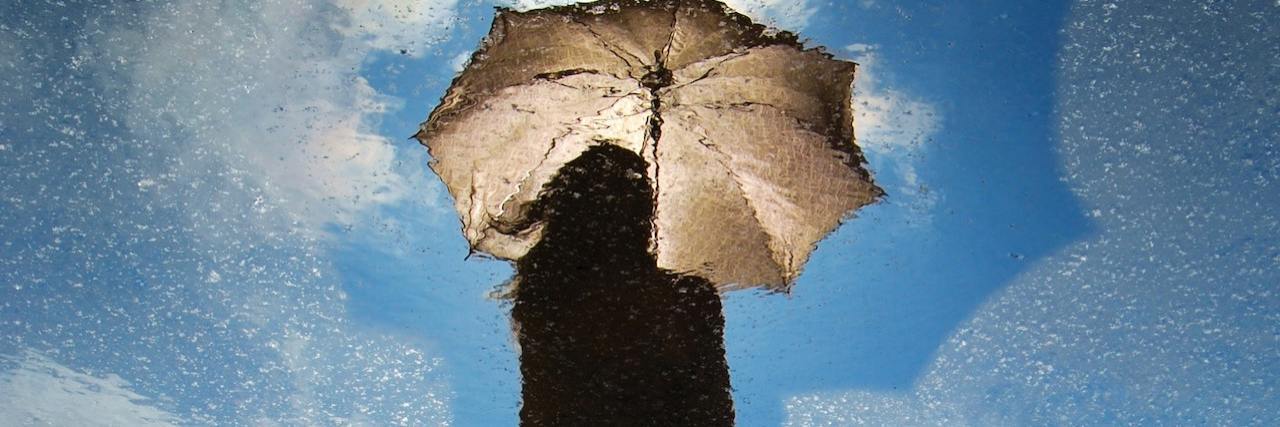The Day I Became the Other Person To Lose Their Father To Suicide
Editor's Note
If you experience suicidal thoughts or have lost someone to suicide, the following post could be potentially triggering. You can contact the Crisis Text Line by texting “START” to 741741.
By Maya Friedson
The day I became the other person to lose their father to suicide I was 18 and on a plane going home. “Flight attendants, please prepare for take-off,” rang through the speakers. As I reached over to silence my phone, it buzzed. The words of a text read: “His father is dead.” As I was putting the phone away, it buzzed again. “It was suicide.” I sighed deeply. I too had gone through what he was now experiencing.
The day I became the other person to lose their father to suicide I remembered why sympathy doesn’t cut it. People don’t know how to talk about death. They struggle to find the words to constructively address the overwhelming feelings of sadness. A response that should be simple becomes overthought and awkward. As the person on the receiving end of all the useless utterances of “I’m so sorry” and the 45-degree head tilts, I can safely say they only made me feel more alone. I spent months wishing for it to stop, praying that I would make it through my day without what felt like a bombardment of vacant sympathy. But now, I worry because it has stopped. I live in a torturous oscillation between wanting them to forget and hoping they’ll always remember.
The day I became the other person to lose their father to suicide the people in my life began treating me as the “expert.” They prodded me with questions, hoping to access some innate wealth of knowledge they were sure I possessed. I was the “other” person whose father took his own life. They asked me to help them help others. I hesitantly agreed. I was their test run. I was the girl who came back to whispers, to eyes that smiled then darted away. People who had never wanted to talk to me did, and those who always had were afraid to. The fallout from the loss was inescapable, destroying my sense of normalcy and routine. The world that I had so meticulously created was gone, and in its place was a skeleton of what it used to be. It was time they learned, and there was nobody else to teach them.
The day I became the other person to lose their father to suicide I was reminded of why I choose to fight the stigma of suicide. I spent the first few months after my dad’s death openly sharing how he died, until one day I was asked not to. At a gathering at a family friend’s house, my mom leaned in and whispered, “I don’t think she’s told her family. Don’t mention how dad died.” Why hadn’t she told her family? Why does she still feel the need to refer to his death as sudden and not suicide? Why do we feel such shame around mental illness? These are questions I think about often. I now refuse to allow the stigma to perpetuate, to unnecessarily cause shame for another individual.
The day I became the other person to lose their father to suicide I realized I hadn’t set myself free. After my father’s suicide, I chained myself to an unexplainable guilt. Despite these years of intellectually defining why he made the decisions he did, I still feel emotionally responsible for the loss of his life. Something as seemingly insignificant as a missed hug or an unrequited “I love you” has the ability to set off a heart-wrenching wave of what-ifs. At 13, I was my life’s protagonist, and everyone else was a supporting character. How was I expected to save a grown man, my own father? I’ve thought this through a million times, and I still wonder what I could have done differently, if I could have saved him.
Today, I know I am one of many people who have lost someone to suicide. It is through working with organizations like The Jed Foundation that I’ve met people from all walks of life who know what I’ve been through and have been through it themselves. Now 20, I have spent the last seven years reflecting on my experience. I’ve learned that the stigma associated with mental illness is pervasive, that shame is silencing, and that we must learn to actively reach out to those we feel are struggling because they often won’t be able to reach out themselves. Above all, I’ve learned that empathy is how we create connections and caring communities. We are all human beings who live, love and feel. We are all connected, and we need to continue sharing our stories.
Maya Friedson is a sophomore at Tufts University and a social media intern with The Jed Foundation.
Photo by David Marcu on Unsplash

